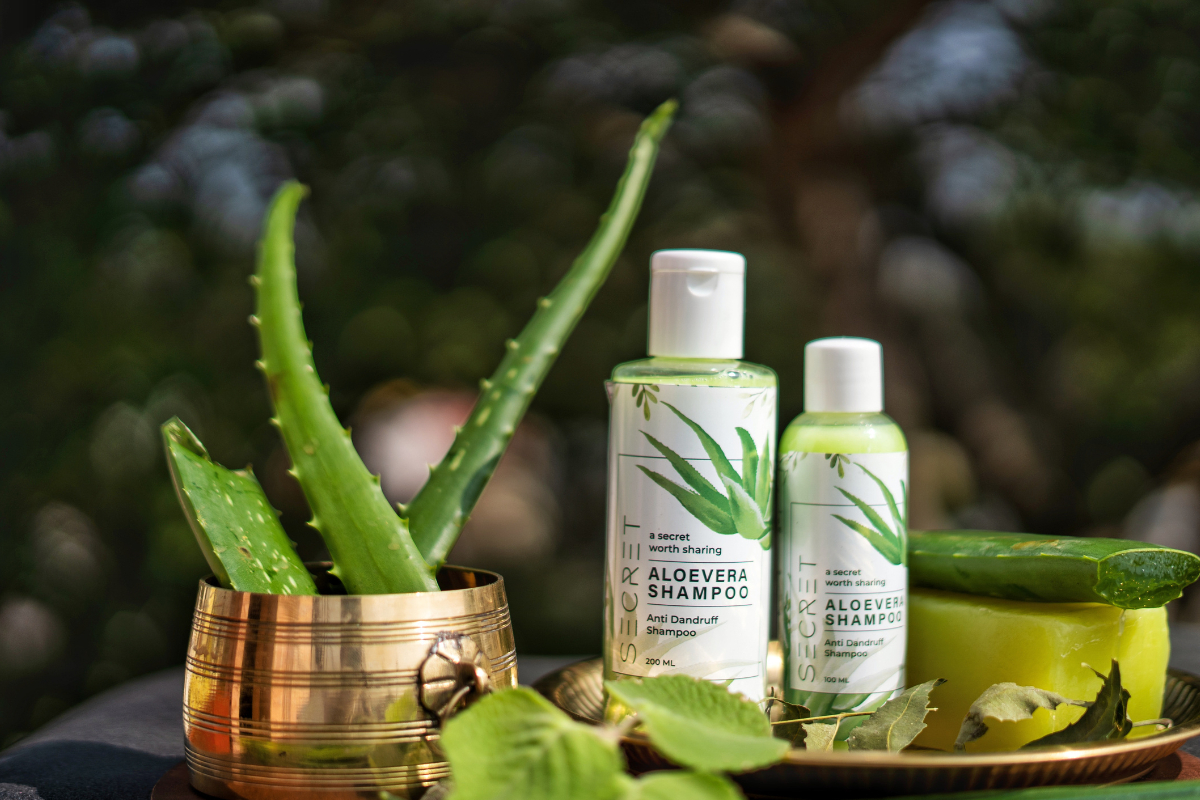Botanical Bounty: Cracking the Herbal Medicine Market Enigma and Growth Potential
Mar 27, 2024
Table of Contents
Herbal Medicine, rooted in ancient traditions across cultures worldwide, has witnessed a remarkable evolution in the modern era. The global Herbal Medicine Market has experienced significant growth over the years, fueled by a resurgence of interest in natural remedies and a growing awareness of the potential health benefits offered by botanical extracts. From traditional herbal preparations to standardized extracts and modern formulations, the market has expanded to cater to diverse consumer needs and preferences. Herbal Medicine offers a plethora of benefits, including holistic approaches to health, reduced side effects compared to synthetic drugs, and often more sustainable sourcing practices. Moreover, its use spans a wide range of health conditions, from alleviating common ailments to supporting chronic disease management.
Major developments in the domain include advancements in extraction techniques, quality control measures, and scientific research validating the efficacy and safety of herbal remedies. Additionally, the competition in the Herbal Medicine market has intensified with the entry of new players, including both traditional herbalists and mainstream pharmaceutical companies. This has led to increased innovation, product diversification, and marketing efforts to capture a larger share of the growing market. As consumers continue to prioritize natural and alternative healthcare options, the Herbal Medicine market is poised for further expansion and innovation in the years to come.
Downloads
Article in PDF
What are Herbal Medicines and their Key Ingredients?
Herbal Medicine, also known as botanical medicine or phytotherapy, is a form of traditional medicine that utilizes plants and plant extracts for therapeutic purposes. This ancient healing practice has been integral to various cultures for centuries, drawing upon the medicinal properties of diverse botanical species. Herbal Medicine encompasses a vast array of plant-based remedies, including herbal teas, tinctures, extracts, capsules, and topical preparations, each tailored to address specific health concerns.
The ingredients used in Herbal Medicine are derived from various parts of plants, including leaves, stems, roots, flowers, seeds, and fruits. These ingredients contain bioactive compounds such as alkaloids, flavonoids, terpenes, and phenolic acids, which contribute to their medicinal properties. For instance, herbs like echinacea and elderberry are rich in flavonoids and polysaccharides, known for their immune-boosting effects. Turmeric contains curcumin, a potent anti-inflammatory compound, while ginkgo biloba contains flavonoids and terpenoids that support cognitive function. The diversity of plant constituents allows for a wide range of therapeutic applications in Herbal Medicine.
What are the Key Benefits and Applications of Herbal Medicine?
The benefits of Herbal Medicine are multifaceted and encompass various aspects of health and well-being. One of the primary advantages is the holistic approach to healing, which considers the interconnectedness of body, mind, and spirit. Herbal remedies often work in harmony with the body’s natural processes, supporting its innate ability to heal and restore balance. Moreover, Herbal Medicine offers a gentler alternative to conventional pharmaceuticals, with fewer adverse effects and a lower risk of toxicity. Many herbal remedies also exhibit antioxidant, anti-inflammatory, antimicrobial, and adaptogenic properties, making them versatile tools for promoting health and resilience.
The uses and applications of Herbal Medicine are extensive, spanning a wide range of health conditions and wellness goals. Herbal remedies are commonly used to alleviate symptoms associated with acute ailments such as flu, colds, digestive upset, headaches, and muscle pain. They are also employed for chronic conditions like arthritis, allergies, cardiovascular disease, and mental health disorders. Additionally, Herbal Medicine plays a crucial role in preventive healthcare, supporting immune function, stress management, detoxification, and overall vitality. Herbal preparations can be administered orally, topically, or through inhalation, depending on the desired therapeutic outcome and the specific properties of the herbs used.
The growing importance of Herbal Medicine is evident in the increasing demand for natural and holistic healthcare alternatives. With rising concerns about the side effects and overuse of pharmaceutical drugs, many individuals are turning to herbal remedies as safer and more sustainable options. Moreover, there is a growing body of scientific research supporting the efficacy and safety of Herbal Medicine, validating its traditional use and expanding its therapeutic potential. Integrative healthcare approaches that combine conventional medicine with complementary therapies like Herbal Medicine are gaining traction, offering patients more comprehensive and personalized treatment options.
What are the Major Types of Herbal Medicine Types in the Market?
A variety of herbal medicine types dominate the market, ranging from traditional remedies like Ayurveda and Traditional Chinese Medicine to modern herbal supplements and botanical extracts, offering diverse options for natural health and wellness solutions. Some of the major and their application include:
Herbal Pharmaceuticals
Herbal pharmaceuticals encompass a wide range of medicinal products derived from plant sources. Key ingredients commonly found in herbal pharmaceuticals include herbs such as ginseng, echinacea, and turmeric, known for their therapeutic properties. These products are often formulated into tablets, capsules, or tinctures for convenient consumption. They offer a natural alternative to synthetic drugs and are used to treat various health conditions, including respiratory ailments, digestive issues, and inflammatory disorders. Herbal pharmaceuticals have gained popularity due to their perceived safety and efficacy, with many consumers seeking them out for their holistic approach to healing.
Herbal Functional Food
Herbal functional foods are food products fortified with herbal extracts or ingredients known for their health benefits. Common key ingredients include green tea, garlic, and ginger, which are incorporated into foods like beverages, snacks, and spreads. These products offer both nutritional value and potential therapeutic effects, such as improved digestion, enhanced immune function, and cardiovascular support. Herbal functional foods cater to consumers looking to optimize their health through dietary choices and offer a convenient way to incorporate herbal remedies into daily routines.
Herbal Beauty Products
Herbal beauty products utilize plant-based ingredients to promote skin and hair health. Key ingredients often include botanical extracts like aloe vera, lavender, and chamomile, renowned for their soothing and rejuvenating properties. These products encompass a wide range of skincare, haircare, and personal care items, including creams, serums, shampoos, and soaps. Herbal beauty products offer natural alternatives to conventional cosmetics, free from harsh chemicals and synthetic fragrances. They are prized for their ability to nourish and revitalize the skin and hair, promoting a radiant and youthful appearance.
Herbal Dietary Supplements
Herbal dietary supplements are formulations containing concentrated herbal extracts or powders intended to supplement the diet. Key ingredients commonly include herbs such as valerian, saw palmetto, and milk thistle, known for their nutritional and medicinal properties. These supplements are available in various forms, including capsules, powders, and teas, and are used to support overall health and well-being. Herbal dietary supplements are prized for their potential to fill nutritional gaps, promote vitality, and support specific health goals, such as weight management or immune support.
Other Herbal Medicine Types
In addition to the aforementioned categories, Herbal Medicine encompasses a diverse array of other products and practices. This includes traditional herbal remedies, such as Ayurvedic and Traditional Chinese Medicine formulations, which utilize a wide range of herbs and botanicals for healing purposes. Additionally, herbal extracts and oils are used in aromatherapy for their therapeutic effects on mood and relaxation. Herbal remedies for specific ailments, such as herbal teas for sleep support or herbal compresses for pain relief, also fall under this category. Overall, Herbal Medicine offers a holistic approach to health and wellness, drawing on the healing properties of plants to promote physical, mental, and emotional well-being.
Herbal Medicine Market Dynamics
The surge in popularity and public fascination with natural therapies has been notable in both developed and emerging nations alike. This heightened interest reflects a growing recognition of the potential benefits offered by holistic approaches to health and wellness. From traditional herbal remedies to practices like acupuncture, yoga, and meditation, people are increasingly turning to natural therapies as complementary or alternative options to conventional medicine. This trend underscores a broader shift toward preventive healthcare, sustainability, and a desire for more personalized and holistic approaches to well-being.
The global popularity of herbal medications and related products is on the rise, with their usage experiencing exponential growth. These items are now being embraced by a significant portion of the global population across diverse healthcare settings to address a wide array of health concerns. Beyond traditional avenues like drugstores, herbal remedies are increasingly available in mainstream outlets such as food shops and supermarkets, reflecting their growing acceptance and accessibility. Research indicates that up to four billion people, constituting around 80% of the world’s population, primarily rely on herbal medicinal products and traditional healing practices for their healthcare needs, particularly in underdeveloped nations. This widespread adoption underscores the increasing trust and reliance on herbal remedies as viable healthcare solutions on a global scale.
Moreover, the escalating costs of healthcare, leading to substantial out-of-pocket expenditures for medical services, pose a significant challenge globally. Countries such as the United States and Germany are particularly notable for their high healthcare expenditures. The high expenditure underscores the financial burden faced by individuals and healthcare systems alike, prompting a search for more cost-effective and sustainable healthcare solutions.
The exorbitant expenses associated with healthcare render diagnosis, treatment, and essential medical services increasingly unaffordable and inaccessible for many individuals. Furthermore, life-saving medications become out of reach for a significant portion of the population due to financial constraints. As healthcare costs continue to soar, there is a notable trend toward embracing herbal medications as an alternative for managing non-life-threatening health conditions such as digestive issues, immune disorders, and other common ailments. This shift reflects a pragmatic response to circumvent the prospect of incurring exorbitant expenses for treatment at later stages, highlighting the growing appeal of cost-effective and holistic healthcare approaches.
Major Factors Hampering the Herbal Medicine Market Growth
Nevertheless, the growth of the Herbal Medicine market may face hindrances due to various factors. One such challenge arises from the insufficient availability of human subjects or existing animal toxicity data, which are crucial for supporting the safety of clinical trials. Additionally, small companies may encounter limitations in expertise, particularly concerning the intricate handling of complex natural materials. These technical difficulties can pose significant barriers to research, development, and commercialization efforts within the Herbal Medicine sector.
As a result, addressing these challenges through enhanced collaboration, investment in research infrastructure, and capacity-building initiatives is imperative for unlocking the full potential of the Herbal Medicine market and fostering its sustained growth.
Key Companies in the Herbal Medicine Market
Companies such as Vasu Healthcare Pvt Ltd., Bio-Botanica, Prorganiq, Kunnath Pharmaceuticals, Beovita, Hishimo Pharmaceuticals Pvt. Ltd., Cadila Pharmaceuticals, ZeinPharma Germany GmbH, Himalaya Global Holdings Ltd., Dr. Willmar Schwabe India Pvt. Ltd., Integria, Dabur, Otsuka Holdings Co., Ltd., Patanjali Ayurved Limited, Innovision Healthcare, Bio Veda Action Research Co., and others in the Herbal Medicine market are driving innovation and setting new standards through their relentless pursuit of new and effective herbal remedies. These companies invest heavily in research and development to explore the therapeutic potential of botanical extracts and traditional remedies, leveraging advancements in technology and scientific understanding.

Through strategic partnerships with academic institutions, herbalists, and research organizations, they gain insights into novel ingredients, formulations, and delivery systems. Furthermore, these companies prioritize quality control and safety standards, adhering to rigorous regulatory frameworks to ensure the efficacy and safety of their products.
Commercially, they employ aggressive marketing strategies, including product differentiation, branding, and global expansion initiatives, to gain a competitive edge and dominate the market. As regulatory developments evolve to establish clearer guidelines and standards for Herbal Medicine, these key companies are at the forefront, setting new benchmarks for quality, transparency, and consumer trust. By pioneering innovative herbal solutions and adhering to stringent regulatory requirements, they are shaping the future of the Herbal Medicine market and driving its continued growth and development.
Major Developments in the Herbal Medicine Market
- In June 2021, Vasu Healthcare Pvt Ltd to strengthen the company’s existing immunity & preventive care range meant for promoting overall health & well-being launched an herbal supplements range – Vasu Safe Herbs.
- In November 2020, Kunnath Pharmaceuticals launched antiviral immunity booster capsules under the brand name ‘Viromune’ across India.
Herbal Medicine Market Dynamics and Future Outlook
The global trend toward sustainability and environmental stewardship has fueled interest in Herbal Medicine as a green and eco-friendly healthcare solution. Many herbs used in traditional medicine are cultivated sustainably or wild-harvested, reducing the ecological footprint associated with pharmaceutical production. Additionally, the resurgence of interest in herbalism has led to the revival of traditional knowledge and practices, empowering communities to preserve their cultural heritage and botanical resources.
Herbal Medicine represents a rich and diverse healing tradition rooted in nature and nurtured by generations of healers worldwide. Its ingredients, benefits, uses, and applications are as varied as the plants themselves, offering a holistic approach to health and wellness that resonates with the growing demand for natural and sustainable healthcare solutions. As Herbal Medicine continues to evolve and integrate with modern healthcare practices, its importance in promoting health, resilience, and harmony with the natural world will only continue to grow.
The future outlook of the Herbal Medicine market appears promising, driven by a convergence of factors that are poised to fuel demand and drive growth. One of the major drivers of this trend is the growing consumer preference for natural and holistic healthcare solutions, spurred by increasing awareness of the potential benefits offered by herbal remedies. With rising concerns about the side effects and long-term health implications of synthetic drugs, many individuals are turning to Herbal Medicine as a safer and more sustainable alternative.
Additionally, the aging population and the prevalence of chronic diseases are driving demand for preventive and complementary healthcare approaches, further boosting the market for herbal remedies. Moreover, advancements in research and technology are unlocking new insights into the therapeutic properties of botanical extracts, leading to the development of innovative formulations and delivery systems. These new and emerging trends, coupled with evolving regulatory frameworks that ensure quality and safety standards, are set to propel the Herbal Medicine market forward. As consumers increasingly prioritize wellness and seek out natural solutions to their healthcare needs, the Herbal Medicine market is poised for continued expansion and diversification in the years to come.

Downloads
Article in PDF



